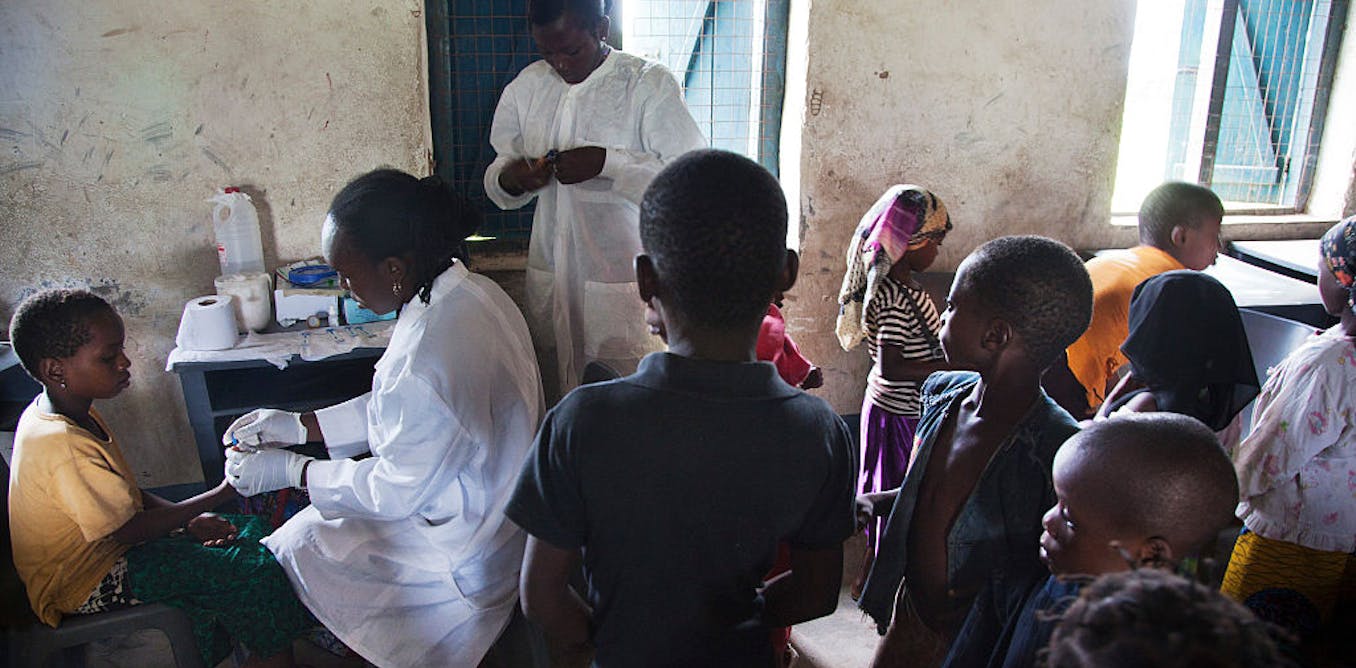ONE person has died and at least ten are in hospital after an E.coli outbreak linked to McDonald’s popular Quarter Pounders.
The bacteria is commonly found in the gut of people and animals and is excreted from the body in faeces.
3

3
Most cases clear up on their own with good hydration and rest but serious infections may need hospital treatment and can be fatal.
Dozens of customers across ten US states have become sick after eating at the fast food chain, the Centers for Disease Control and Prevention(CDC) announced on Tuesday.
Colorado, Iowa, Kansas, Missouri, Montana, Nebraska, Oregon, Utah, Wisconsin and Wyoming have all reported cases.
The public health body fears the number of illnesses is likely much higher, as it usually takes three to four weeks to determine if a sick person is part of an outbreak.
People with severe E. coli symptoms after eating a McDonald’s Quarter Pounder are being urged to contact a healthcare provider.
The specific ingredient in the burgers causing illness is still unknown.
As a precaution, McDonald’s has stopped using fresh slivered onions and beef patties in Quarter Pounders.
It has also paused sales of Quarter Pounders in affected states, although other menu items are unaffected.
“If you have severe symptoms of E. coli infection after eating a Quarter Pounder hamburger at McDonald’s, seek health care and tell your provider about what you ate,” the Centers for Disease Control (CDC) said in a statement on its website.
What is E.coli?
Short for Escherichia coli, E.coli is a bacteria most commonly found in the lower intestine of warm-blooded organisms.
Most E.coli strains are harmless but some can cause serious food poisoning.
That is the case with Shiga toxin-producing E.coli (Stec), a bacterium that can cause severe foodborne disease.
Earlier this year, one person in England died in a Stec outbreak spread by contaminated lettuce.
Brits were warned not to eat a selection of wraps, sandwiches and salads after the nasty stomach bug landed dozens in hospital.
There are typically about 1,500 cases of Stec over a full year in the UK, according to the UK Health Security Agency (UKHSA).

3
In the US, it’s estimated around 265,000 people are infected with Stec coli each year.
What are the symptoms?
The main symptoms include:
- Bloody diarrhoea
- Stomach cramps
- Fever
- Not passing urine
- Confusion
- Shivers and chills
- Vomiting and nausea
Symptoms can last up to two weeks in cases without complications.
When E.coli turns deadly
For some patients, mainly children, it can cause haemolytic uraemic syndrome (HUS) – a serious life-threatening condition resulting in kidney failure.
In an information leaflet, the UKHSA says that HUS may occur up to two weeks after the start of the diarrhoea.
It adds: “If your symptoms do not go away or you develop easy bruising, feel you are passing less urine than usual or your urine is pink/brown in colour, please urgently seek medical advice as these symptoms could indicate the start of HUS and you may need further tests.”
A small number of adults may develop a similar condition called thrombotic thrombocytopenic purpura (TTP).
Virologists have warned the illness can be much worse in young children, elderly people, and those with underlying conditions in their immune system.
Parents concerned about a baby under 12 months are being advised to call 111 or contact their GP for surgery.
This is especially the case if the child stops breast or bottle feeding, or shows signs of dehydration.
How is it treated?
There is no specific treatment for a Stec infection and it will usually clear itself within a week.
It is important to drink plenty of fluids as diarrhoea can lead to dehydration.
Antibiotics are not recommended and are likely to increase the risk of getting complications such as HUS.
How to reduce your chance of catching E.coli
Some kinds of E. coli can make you sick.
The best ways to prevent infection are by keeping your hands clean, preparing food safely, and drinking safe water.
These steps are especially important for some groups of people.
These groups include children younger than 5, adults 65 and older, people with a weakened immune system, and international travellers.
If you or your child have E.coli avoid work, school or nursery until 48 hours after symptoms have stopped




